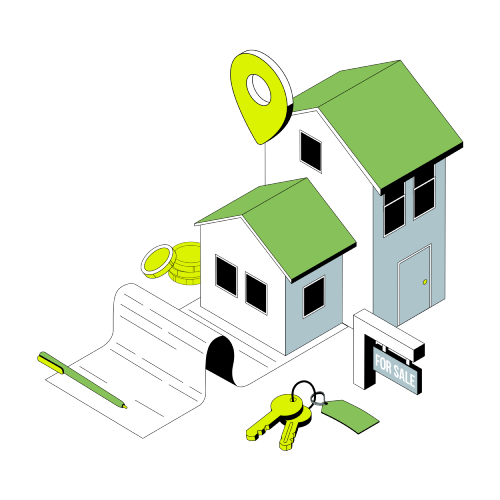Investing in real estate by purchasing a rental property in Canada can be a robust strategy to grow one’s financial portfolio. The allure of a passive income stream from rental payments is compelling, especially when coupled with the potential for property appreciation over time. As explained by Best Edmonton Realtor, when looking to navigate the market, learning how to buy a rental property in Canada comes with the importance of evaluating the investment with a clear head and a focus on the numbers. The key is to assess affordability, factoring in both my existing financial commitments and a realistic expectation of rental income.
Securing a good investment requires thorough research and careful planning. In Canada’s diverse real estate market, the location of a rental property plays a critical role in determining its success. An area with strong employment rates, good schools, and pleasant amenities is more likely to attract and retain tenants. Moreover, understanding the nuances of local markets, including tenant laws and property taxes, is essential. These factors will influence the profitability and management of my rental property.
Prior to making a purchase, I consider the financial aspects of buying a rental property, such as the down payment, which typically sits around 5% for one- or two-unit properties under $500,000. Beyond that price point, the required down payment increases. It’s also important to be mindful of the operating expenses, mortgage interest, and how these can impact the investment. With the right approach, investing in a rental property can lead to a rewarding addition to my financial assets, provided I adhere to Canada’s property investment guidelines and manage the property wisely.
How to Buy a Rental Property in Canada: Understanding the Canadian Rental Property Market

When considering a rental property in Canada, I focus on the dynamic real estate markets, the strategic importance of locality, and how the recent COVID-19 pandemic has affected the housing landscape.
Real Estate Markets and Trends
In Canada, real estate markets such as Toronto and Vancouver have traditionally been attractive locations for investment properties due to consistent population growth and economic stability. However, these markets are also known for their high entry barriers, with prices reflecting the strong demand for property. For example, the average price of a home in Vancouver can frequently exceed CAD 1 million, significantly impacting an investor’s initial capital requirement and potential return on investment.
Importance of Location
The maxim ‘location, location, location’ holds particular truth in the Canadian context. A rental property’s value and desirability are heavily influenced by its vicinity to amenities, public transport, and employment opportunities. For instance, properties within close range of metropolitan centres like downtown Toronto command higher rents than those in more remote areas, making them more attractive to investors seeking greater cash flow.
Effects of COVID-19 Pandemic on the Market
The COVID-19 pandemic introduced volatility and new trends across Canadian housing markets. During the pandemic, I’ve observed a shift with some individuals moving away from crowded urban centres to suburban or rural properties, seeking more living space. This trend has affected rental demand and prices in these regions differently, with some areas experiencing decreased rent prices due to lower demand, while others have seen an increase as people search for more affordable living spaces outside of major cities. The market continues to evolve as the situation with the pandemic progresses.
Preparing for Your Investment

When I set out to invest in a rental property in Canada, I focus on thorough financial preparation and understanding the costs associated with the venture. This ensures I’m equipped to make a prudent investment decision and is essential for anyone learning how to buy a rental property in Canada.
Assessing Your Financial Readiness
I always begin by examining my financial health. Credit score and income are crucial for securing a mortgage with favourable interest rates. I use an affordability calculator to determine how a potential property purchase fits into my budget. This involves factoring in my current debts, expenses, and the down payment required for the investment property. Typically, in Canada, I’d need at least a 20% down payment of the property’s purchase price.
Calculating Costs and Potential Return on Investment
My next step is to meticulously calculate the potential costs and returns. I prepare a detailed list of expenses, including:
- Mortgage payments
- Property taxes
- Maintenance costs
I then forecast the potential rental income to estimate the return on investment (ROI). For this, I look at comparable rental rates in the area. Importantly, I also consider the property’s potential for appreciation, adding to the investment’s value over time.
| Expense Type | Estimation Technique |
|---|---|
| Mortgage Payments | Affordability calculator based on principal and interest |
| Property Taxes | Municipal assessment notices |
| Maintenance & Repairs | Percentage of rental income or a fixed monthly allocation |
| Insurance | Quotes from insurance providers |
| Utilities (if included) | Historical data from utility companies or previous owners |
Understanding Taxes and Other Expenses
Canada’s tax system allows certain deductions for rental property owners, which I incorporate into my financial planning. These deductions can offset rental income and include:
- Interest on the mortgage
- Property taxes
- Operating expenses
- Insurance
- Professional fees (e.g., legal, property management)
I also account for closing costs, which can range from 1.5% to 4% of the purchase price. These include fees for legal services, land transfer taxes, and home inspection services. My objective is to have a comprehensive understanding of the taxation and extra expenses to accurately project my net income and ensure the investment aligns with my financial goals.
The Process of Purchasing Rental Property

Purchasing rental property in Canada involves diligent research and collaboration with professionals to ensure a sound investment. I’ll detail how to buy a rental property in Canada from researching properties to making an offer and closing the deal.
Researching Properties and Neighbourhoods
My first step is always to conduct thorough research on potential properties and neighbourhoods. I use tools like realtor.ca and the Canadian Real Estate Association’s (CREA) resources to search for properties that fit my budget and investment goals. Key factors include location, local rental market statistics, property condition, and long-term appreciation potential. I prioritize areas with growing employment opportunities, low vacancy rates, and favourable tenant demographics.
Working with Real Estate Professionals
Next, I enlist the expertise of a licensed real estate agent specialized in rental properties like Best Edmonton Realtor. Their knowledge of the Canadian market, access to exclusive listings, and negotiation skills are vital. Moreover, they provide insights into legal and tax implications of owning a rental property. My agent helps me navigate through listings on platforms like realtor.ca, ensuring I make informed decisions.
Making an Offer and Closing the Deal
Once I’ve identified the ideal rental property, I proceed to make an offer. This includes determining a fair price, which often requires negotiation. I also take into account additional costs such as property taxes, insurance, and potential strata fees. After my offer is accepted, I work closely with a lawyer or notary to complete the closing process, which involves signing documents, handling the down payment, and officially transferring the title. This final step solidifies my purchase and marks the beginning of my journey as a property investor in Canada.
Managing Your Rental Property

When I purchase a rental property, my aim is to maintain a healthy income stream by ensuring the property is well-managed and attractive to tenants. Attention to landlord responsibilities, maintenance, and the option to use property management services can greatly influence the success of the investment.
Landlord Responsibilities and Tenant Relations
As a landlord, I must be well-versed in landlord-tenant laws to ensure that I am fulfilling my obligations and also protecting my interests. A stable relationship with tenants contributes to reducing vacancy rates and securing rental income. I adhere to these points:
- Screening Tenants: Conducting thorough background checks to find responsible tenants.
- Lease Agreements: Clearly outlining terms and ensuring they are in accordance with Canadian laws.
- Rent Collection: Setting up a reliable system for collecting rent to ensure a consistent income stream.
- Addressing Tenant Concerns: Responding promptly to tenant communications to maintain good relations and adherence to legal obligations.
Maintenance, Repairs, and Improving Cash Flow
Proper property maintenance and timely repairs are crucial in protecting my investment and keeping tenants satisfied. This requires me to:
- Routine Maintenance: Regularly check and maintain essential services and property aesthetics.
- Emergency Repairs: Being prepared financially and logistically to handle urgent repairs.
- Upgrades: Investing in property improvements can justify rental increases and enhance equity over time.
By doing these, I aim to improve the property’s cash flow by minimizing expenses associated with high turnover and property deterioration.
When to Consider Property Management Services
Hiring a property management company may be a worthwhile investment, especially if I am managing multiple units or do not have the time to address day-to-day tasks associated with renting. A few considerations include:
- Management Fees: Weigh the cost against the value of services provided, which typically include tenant screening, rent collection, and handling repairs.
- Professional Expertise: Benefit from their knowledge of landlord-tenant laws and efficient management practices.
- Distance from Property: If I live far from my rental property, a local property management team can be indispensable.
Selecting the right property management service hinges on finding a balance between their fees and the potential to augment my property’s income and maintain its condition.







